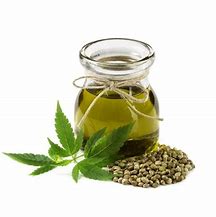How to Make Homemade Olive Oil: A Step-by-Step Guide









How to Make Homemade Olive Oil: A Step-by-Step Guide
Trying to be completely self-sufficient? Why not add homemade olive oil to your impressive survivalist skillset?
There is nothing better than having complete control over what you consume and you can do that by making raw products yourself. You know exactly where it’s coming from, who handled it, and what is in it. One great raw product you can make yourself is healthy fats–and that’s exactly what olive oil is!
Making homemade olive oil may initially seem like a messy process, but we share the steps with you, and in no time you will have perfected your technique. Since olive oil is such an expensive commodity, we will even share some background information and buyer’s tips further down.
How to Make Healthy Homemade Olive Oil
Step 1. Pick Your Olives
There are many types of olives out there. In fact, there are over 1,000 different kinds to choose from. The most common type of olive used for cold-pressing is the green olive.
Some commercial producers use a combo of green and black olives. When all is said and done, it’s up to you which olive you pick for your oil. Each olive gives a different flavor, just like different kinds of fruit juices.
Olive oil flavors are subtle, but in extra virgin oil, you should be able to taste olives. Once you know what you prefer, you can tap into your favorite olives over and over.
– Grow your Own
Ideally, you would want to grow your own olives to be fully self-sufficient. If you live in the southern states of the US, you can grow your own olive trees with one stipulation: temperature.
As long as you know your trees won’t have to face temperatures below 20° Fahrenheit, you can plant gorgeous olive trees.
– Local Markets
Some specialty stores may carry fresh olives, but they will be few and far between in the majority of the world. If you live in a warm climate, you can find farmers that will offer this bitter fruit at local markets.
– Canned Olives
Olives that are overripened will create an oil that will spoil so don’t use canned olives.
Step 2. Gather Your Equipment
Olives that are overripened will create an oil that will spoil so don’t use canned olives.
Step 2. Gather Your Equipment
Assuming you’ve found a supply of fresh olives, you will need the following equipment for an easy DIY way to make the oil:
- A grinding mechanism like a millstone (if you don’t happen to have a millstone handy, you can get small grinders or mallets–this will be more labor-intensive but it will also be less costly).
- Immersion blender
- Anything weighty (heavy wood, cinder blocks, books, whatever you’ve got)
- Surface to press and collect pomace upon
- Holding containers for the separation
- Dark green bottles
- Funnel
Although it may seem like a long list of supplies, many of these will be a once-off purchase which you can use again and again.
Step 3. Prepare the Olives
Carefully harvest your olives if you’ve grown your own. Even though they may seem like hardy fruit, even olives can bruise if harvested roughly.
Gently upend them in a big basin of cold water and slosh them around, washing them with care to ensure they are thoroughly clean.
Give them a rinse with cool water and turn them out onto a strainer, allowing the olives to drain over your sink.
Step 4. Crushing and Grinding
Now for the fun yet messy part – crushing and grinding. Crush and grind your olives, pits and all, using the millstone, if you were fortunate enough to get one.
If you don’t have a millstone, you may have to use a small coffee grinder or mallets. Spread plastic on your working surface to make clean-up easier.
A great project to get your family involved with, you can take turns with the kids to see who can smash the most olives with your mallets.
By now you should have a rough paste, which you can place into a blender and create a finer paste.
Once you can see oils on the surface of the paste, it is ready for pressing.
Step 5. Press that Oil Baby!
Spread the fine paste onto your chosen oil press surface. Ideally, you should be able to tilt it.
Next, spread cellophane either over the paste, or cover the heavy object that you will be using.
Place this heavy object on top of the olive paste.
Once that is done, carefully tilt the surface you are pressing your oils on, allowing the liquid to flow into your holding containers where the oil will separate from the rest of the liquid.
Step 6. Separation
Allow this liquid in the holding containers to sit and separate for two hours.
Now you can slowly pour the separated oil from the container into your green oil bottles with a funnel.
Cork your homemade olive oil in the dark bottles, and store in a cool, dry place.
Lastly: Storage
Because your olive oil has no added preservatives, it will last about two years and eventually go bad. That is of course if you don’t use it. So use your homemade virgin olive oil for all your baking and cooking needs – it is healthy, beneficial, and best of all – homemade.
Label it the day that you make it and add the date, before placing it in your selected storage area.
How Extra Virgin Olive Oil is Traditionally Made
Typically, extra virgin olive oil is made at large mills by a method called cold-pressing. You may have seen this term on some of your favorite healthy smoothies more recently.
Basically, olives are pressed through a machine and oils are collected while the rest of the olive is discarded. Cold-pressing eliminates the use of heat to extract oils, thus, it’s considered an unrefined oil; all the good stuff is left intact.
Olive oils in the grocery store are often labeled Extra Virgin, which is the highest grade olive oil you can get. However, it’s quite possible that it’s virgin olive oil.
Since Extra Virgin Olive oil is the purest, most unadulterated oil you can get, it will be free from additives, added flavors, and artificial coloring. Olive oil, in its purest state, is merely cold-pressed, and never heated or processed further.
Olives that go through the cold-press process are carefully handled by professionals that take oil pressing very seriously.
Unfortunately, the only way to tell if you will be reaping the benefits of extra virgin olive oil is through lab tests. Which is why making it for yourself will guarantee the best results.
Health Benefits of Making Your Own Olive Oil
When I talk about the health benefits of this oil, I’m talking about the real stuff – the extra virgin olive oil, because the rest of those fancy bottles are quite questionable. So, with that being said, these are the widely celebrated health benefits of olive oil:
- Antioxidants: Olives are full of beneficial antioxidants, which are known to prevent cell damage.
- Monosaturated Fats: These fats are the good fats, which is why the health gurus of the world suggest using olive oil vs. vegetable oil. Monosaturated fats may help lower the risk of heart disease, or stroke.
- Anti-Inflammatory Properties: This oil is said to have anti-inflammatory abilities, which is great for those with ailments like arthritis.
- Antimicrobial Properties: According to the National Center for Biotechnology Information, “…olive oil could be a hurdle component in certain processed foods and exert a protective effect against foodborne pathogens when contaminated foods are ingested.”
I know, that’s a lot to swallow, but basically, the studies conducted demonstrate olive oil’s ability to slow or stop the spread of bacteria.
Cost Savings of Homemade Olive Oil
Of course, we can’t talk about the benefits of making your own olive oil without mentioning the money factor.
A true, pure, extra virgin olive oil can cost $30–ouch! So, think about that when you are buying your olive oil in the store. In some cases, you do get what you pay for.
Making your own oil, once you have all the tools, will cost pennies. If you see yourself making oil often, consider investing in equipment (like an oil press, fruit press, or grinder). The initial costs will set you back a bit, but just think of all the olive oils you can make!
Conclusion
With such health and cost benefits, you should definitely consider making your own olive oil. Even if you do not live in the sunny southern states and even if it is not your aim to be totally self-sufficient. Being able to tell your friends that you press your own olive oil, will be a feather in the cap of any homesteader.
Then just a last practical note on what I found during my research. When shopping for extra virgin olive oil, always read the label. If there is very little information, no harvest date, or mill name on the label, pass it up. Sometimes extra virgin olive oil is also diluted with other plants, like soybeans, so keep an eye on the label for additives.
By
20 Evidence-Based Aloe Vera Oil Benefits For Skin, Hair & Health








20 Evidence-Based Aloe Vera Oil Benefits For Skin, Hair & Health
Aloe Vera is nature’s best gift to mankind. This humble-looking pricky plant has magical properties that are known to heal many ailments related to skin, hair and health. Aloe Vera has been used for many centuries for its therapeutic properties and is a common ingredient in most cosmetic and healthcare products. We have many aloe vera oil benefits for hair, skin and health disorders. Aloe Vera oil is extracted by mixing the plant’s gel in a carrier oil. This is applied to the affected areas to soothe and relieve the area of problems. In this article, we shall guide you about aloe vera oil uses & how to prepare aloe vera oil at home.
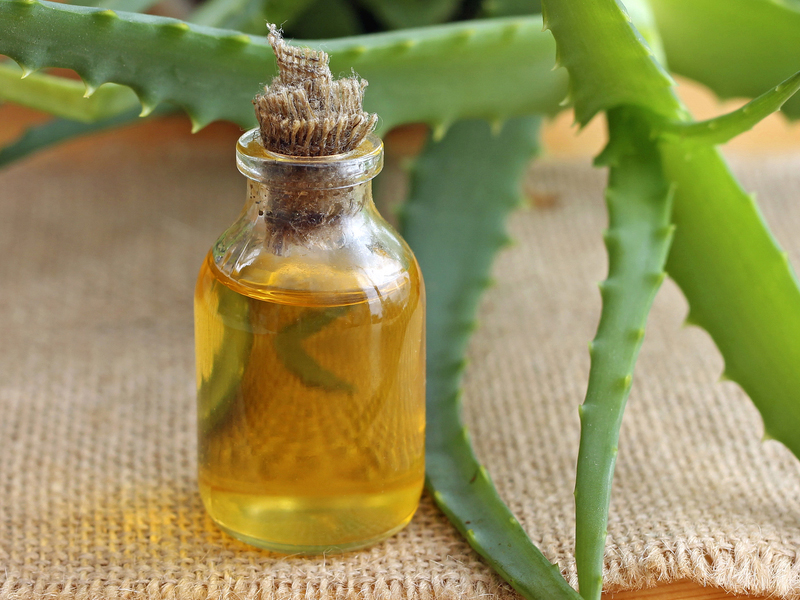
Aloe Vera Oil Key Aspects:
- What Is Aloe vera Oil?
- Is Aloe Vera Oil Safe?
- Composition Of Aloe Vera Oil
- Aloe Vera Oil Nutrition Facts
- How To Make Aloe Vera Oil At Home?
Aloe Vera Oil Benefits For Health:
- Aloe Vera Oil Helps In Preventing Cancer
- Aloe Vera Oil For The Immune System
- Aloe Vera Oil Acts As Anti Inflammatory
- Aloe Vera Oil Controls Blood Sugar Cholesterol
- Aloe Vera Oil Works As Anti Microbial
- Aloe Vera Oil As Wound Healer
- Aloe Vera Oil Treats Fungal Infection
- Pain Relief Oil
- Dental Care
-
Aloe Vera Oil Benefits For Hair:
- Aloe Vera Oil For Hair Health
- Aloe Vera Oil For Scalp PH Balance and Dryness
- Aloe Vera Oil For Hair Regrowth
- Aloe Vera Oil For Anti-Dandruff Treatment
Aloe Vera Oil Benefits For Face and Skin:
- Aloe Vera Oil For Cosmetics
- Aloe Vera Oil Treats Skin Problems
- Aloe Vera Oil As A Natural Deodorant
- Aloe Vera Oil For Aroma Therapy
- Aloe Vera Oil Provides Anti Oxidants
- Aloe Vera Oil To Cure Acne and Scars
- Aloe Vera Oil For Skin Lightening
Aloe Vera Oil Other Aspects:
- How To Use Aloe Vera Massage Oil?
- Side Effects Of Aloe Vera Oil
What Is Aloe vera Oil?
Aloe vera oil is not a pure oil extracted from the aloe plant. It is made by mixing the natural aloe vera gel in any carrier oil to enhance its properties and make it easy to apply. Cold-pressed coconut oil is a preferred oil, known for its natural healing properties. One can also add essential oils like rose, peppermint, lavender, etc., to make the oil aromatic and added benefits.
Is Aloe Vera Oil Safe?
Aloe vera oil is completely safe to use when applied topically. Coconut oil which is usually harmless may cause breakouts in certain people. One can replace it with sunflower oil, a cheaper and non-comedogenic option. If you plan to consume aloe oil internally, one may experience dehydration and stomach disorders, as it contains coconut oil.
Composition Of Aloe Vera Oil:
Aloe vera is a storehouse of many nutrients including vitamins, minerals, and antioxidants. This miraculous oil is composed of:
1. Amino Acids:
- Aloe vera oil has 20 amino acids, including essential amino acids.
2. Minerals:
- Aloe vera is mineral-rich and packed with copper, magnesium, sodium, potassium, magnesium, and calcium.
3. Anthraquinones:
- These are antiviral agents which include aloin, cinnamic acid ester, and aloe-emodin.
4. Lipid Compounds:
- Aloe vera oil consists of fatty acids like arachidonic acid, gamma-linoleic acid.
5. Vitamins:
- It consists of many vitamins including Vitamin C, Vitamin E, Vitamin B1, Vitamin B2, and Vitamin B6.
Aloe Vera Oil Nutrition Facts:
Aloe vera oil is made by mixing Aloe vera juice or gel in a carrier oil. The following are the nutrition facts of Aloe vera (without taking into consideration the nutrition of oil):
1 Cup Of Aloe Vera Juice Has:
- Sodium: 3 % of DV
- Vitamin C: 100 % of DV
- Calcium: 4 % of DV
- Carbohydrates: 1 %
- Magnesium: 1 % of DV
- Total Calories: 12
How To Make Aloe Vera Oil At Home:
Aloe Vera oil is made available in the market by several brands. However, they contain chemicals and preservatives. Preparing the oil at home is a simple, safe, and effective way to attain maximum benefits:
You Will Need:
- ½ Cup Fresh Aloe Vera Gel.
- ½ Cup Cold Pressed Coconut Oil.
- 3 Drops Of Essential Oil Like Rose, Peppermint, Sandalwood, etc.,
- 1 Mixing Bowl
- 1 Vessel
Steps To Make:
- Mix freshly extracted Aloe Vera gel and coconut oil in a 1:1 ratio in a mixing bowl.
- Add a few drops of essential oil like Jasmine, Rose, citrus depending on the ailment.
- Transfer this oil in a vessel and heat it for about 10 minutes.
- Store in a glass container after cooling it.
Shelf Life: The oil lasts for about 2 weeks. You can increase its life by storing it in a refrigerator.
Research-Based Aloe Vera Oil Benefits:
Here we have some of the top-notch aloe vera oil uses that can be used for the achievement of various goals for the body, hair as well as for the skin. Use them regularly to get visible outcomes that you are satisfied with.
A) Aloe Vera Oil Benefits For Health:
Here we enlisted 9 best aloe vera oil benefits for health. Let’s have a look into them.
1. Aloe Vera Oil Helps In Preventing Cancer:
- One of the best benefits that you would want for yourself by using Aloe Vera oil is to prevent cancer.
- There are antioxidants in the liquid that helps in preventing the free radicals from damaging the cells and thus prevents and protects the body from colon cancer.
- It is also oil that helps in overcoming the side effects caused by chemotherapy.
- It also reduces the speed of tumour growth.
- This is one of the most useful benefits of aloe vera oil.
-
2. Aloe Vera Oil For The Immune System:
- Aloe Vera oil is known to strengthen the immune system to a great extent.
- It helps in keeping the blood glucose levels at a balance because of this benefit and control diabetes as well as cures issues of epilepsy, osteoarthritis, and asthma.
- Aloe Vera has anti-inflammatory, antibacterial, anti-fungal, and antiviral properties as well that make the immunity strong.
3. Aloe Vera Oil Acts As Anti Inflammatory:
Aloe Vera contains within itself the properties of anti-inflammation that immediately soothes and softens the affected area while cooling down the inflamed swelling, thereby also reducing the redness and the pain. This is not only limited to skin issues but inflamed joints and bone structures as well.
How To Use:
- Add aloe oil to a mixture of turmeric and honey and apply to the affected inflamed area.
4. Aloe Vera Oil Controls Blood Sugar Cholesterol:
- Aloe Vera oil benefits also include containing your cholesterol levels while soothing your blood sugar level so that you can always function healthy and strong.
- To avail of this benefit, one should especially take note to the edible aloe vera oil while purchasing, something that can easily be added to your everyday diet.
- Aloe Vera, with its medicinal properties, maintains your blood sugar levels while adjusting your cholesterol levels to perfection.
5. Aloe Vera Oil Works As Anti Microbial:
- Aloe Vera is enriched in antimicrobial properties, something that accounts to its medicinal values.
- Destroying the germs within, Aloe Vera oil, edible can be added to the diets to maintain proper digestion and smooth working of your body functions.
- The same accounts for skin issue that once again uses the antimicrobial qualities to keep skin taut and staunch.
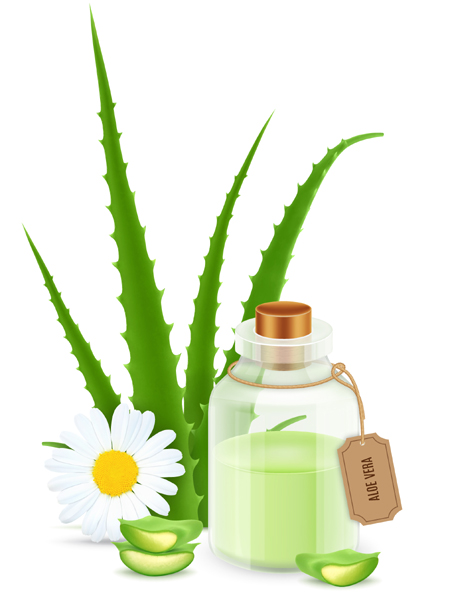
6. Aloe Vera Oil As Wound Healer:
Aloe Vera oil for skin is highly cicatrizing in nature; that is, it enhances the quick healing of wounds. Open wounds on the skin might look ghastly and might take even a longer time to heal. In such a situation, use the benefits of essential aloe oil to cure or close up a wound at a speedier rate.
How To Use:
- Clean the wound first with an antiseptic, and once the bleeding stops, apply aloe oil to a cotton ball and keep the wound covered and moist.
7. Aloe Vera Oil Treats Fungal Infection:
- Aloe Vera has anti-fungal properties.
- Often fungal infections can occur in the skin causing nasty marks and even nastier conditions for your skin.
- In such a case, even the scalp can be the victim of fungal problems.
- Just use the aloe vera oil benefits to cure fungal problems.
8. Pain Relief Oil:
- Aloe Vera oil acts as good massage oil which can treat joint pains, arthritis, and other pains in the body.
- By infusing peppermint, wintergreen essential oils, you can enhance its properties to offer soothing and comforting relief from pain.
- You can also experience relief from inflammation caused by injuries or muscle strain.
9. Dental Care:
Suffering from toothache, Gingivitis, and plaque? Both Aloe Vera and coconut oil are great for good oral health.
How To Use:
- Aloe Vera, when mixed with coconut oil, can offer relief from periodontal diseases.
- The oil must be massaged on gums for 5 minutes to attain relief from dental worries.
B) Aloe Vera Oil Benefits For Hair:
Here we enlisted the 4 best aloe vera oil benefits for hair. Let’s have a look into them.
10. Aloe Vera Oil For Hair Health:
How To Use:
- Using Aloe Vera oil with a carrier oil for a hair massage will help in the prevention and treatment of hair fall, which is quite a common problem nowadays.
- Thick, long, conditioned hair is what you will get with Aloe Vera oil use.
- It also treats the dryness of the hair strands and healthy scalp with a jojoba oil mix.
11. Aloe Vera Oil For Scalp PH Balance and Dryness:
- Even though it has been mentioned in the prior point that aloe oil enhances good quality hair and induces growth and thickness in it, there are other benefits that people are still not aware of.
- Aloe Vera oil for hair not only maintains the PH balance of your scalp but also makes sure over-drying doesn’t result in repetitive dandruff problems.
- Keep your hair stronger than ever now with a little help from the Aloe Vera oil.
12. Aloe Vera Oil For Hair Regrowth:A
- Aloe oil is a wonderful agent to promote new hair growth.
- Even if you have a bald patch caused by previous chemical treatments or medications, Aloe Vera oil can stimulate hair follicles.
- It also nourishes your hair strands to prevent hair breakage, split ends, and frizz.
13. Aloe Vera Oil For Anti-Dandruff Treatment:
- If you are suffering from a flaky, itchy scalp caused due to dandruff, Aloe Vera and coconut concoction work wonders.
- The anti-bacterial, anti-fungal properties of Aloe Vera oil helps in bringing down the yeast multiplication on the scalp.
- It also reduces excess sebum and maintains oil balance.
Aloe Vera Oil Benefits For Face and Skin:
Here we enlisted 7 best aloe vera oil benefits for the skin and face. Let’s have a look into them.
14. Aloe Vera Oil For Cosmetics:
- Aloe Vera itself is one of the natural products that help in maintaining skin health.
- It is thus useful for cosmetic purposes and is used in products to reduce the ill effects of the harmful rays of the sun.
- Many moisturizing lotions and creams have Aloe Vera oil.
- It can be used in various homemade packs as well.
15. Aloe Vera Oil Treats Skin Problems:
- Aloe Vera oil skin benefits are numerous.
- It is also known for the treatment of various infections on the skin.
- You can use this oil as a spot treatment for acne and breakouts.
16. Aloe Vera Oil As A Natural Deodorant:
- Aloe Vera oil has a great smell due to essential oils, and therefore it can be used as a natural deodorant to remove the body odour.
- It also controls the perspiration problems of the body.
- Aloe Vera Oil can be applied in the underarms to solve this problem, or a spray can be made at home for achieving the purpose.
17. Aloe Vera Oil For Aroma Therapy:
- Combined with other essential oils, the Aloe Vera oil makes a perfect option for aromatherapy and rejuvenation of skin and mind.
- The astringent properties also help in repairing the damaged skin to a good extent.
- For those who want a revived feel, try an Aloe Vera oil massage combined with any other that you like. It is bound to help you in a great way.
18. Aloe Vera Oil Provides Anti Oxidants:
- The high levels of antioxidants in aloe vera oil are a perfect one for good skin health and to prevent ageing.
- It also protects the skin from any sun radiation.
- Aloe vera oil can heal sunburns and scars.
19. Aloe Vera Oil To Cure Acne and Scars:
- Ghritkumari uses its properties to cure minor issues like acne.
- Aloe oil in its potent form can be applied to the spot and cure at the earliest is guaranteed. Also, acne at times tends to leave easy marks which can also be tackled using the goodness of aloe oil.
- Apart from this, you can also prevent your skin from tanning and overexposure to the sun by using aloe as a soothing sun tan applicator.
20. Aloe Vera Oil For Skin Lightening:
How To Use:
- Preparing Aloe Vera oil with almond oil and mixing it with turmeric can act as a skin whitener.
- Aloe vera oil reduces pigmentation caused by melanin production.
- Regular usage can help in rendering even skin tone.
How To Use Aloe Vera Massage Oil?
If you are suffering from chronic joint and muscle pains due to arthritis, rheumatism or injuries, Aloe Vera body oil can offer a great relief when used for massages:
- When preparing Aloe Vera oil to add a few drops of pain relief, essential oils like Peppermint, rosehip, Lavender or Marjoram.
- Slightly warm the oil before you begin massaging.
- Take a few drops of this warm oil on the affected area and using fingertips rub in circular movements.
- Massage for 2-3 minutes.
- You can also follow it with a heat pack for quick pain relief.
Side Effects Of Aloe Vera Oil:
While Aloe Vera oil is usually non-allergic, one may experience certain complications listed below:
- Aloe Vera may cause skin irritation and redness in certain cases. However, this is usually noticed when applied directly on the affected skin.
- Aloe Vera oil, when made with coconut oil may cases rashes in some people. You can replace it with coconut or olive oil.
- When consuming Aloe Vera oil, ensure you make it with food-grade oil.
- Edible Aloe Vera oil must be free from essential oils.
- Aloe Vera oil when ingested may trigger vomiting and dehydration.
Aloe vera oil may not be a popular form of using this wonderful plant. We hope this article helped you understand the miracles of this oil. Aloe Vera oil is fast gaining popularity, particularly in the beauty industry, where its role is indispensable in the making of many skin and hair care products. The amazing aloe vera oil benefits when combined with the goodness of coconut and essential oils, make it an elixir that can treat numerous problems. As mentioned above, we recommend making this easy-to-make oil at home for increasing its effectiveness and ensuring safety standards. Also, don’t forget to go organic!
Written by Saanvi: Styles at Life
What Are the Health Benefits of Black Seed Oil?
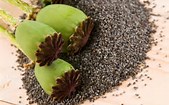





What Are the Health Benefits of Black Seed Oil?
Black seed oil may have anti-inflammatory and antibacterial properties that could help with conditions like psoriasis, asthma, hair loss, and acne. But more research is needed to confirm these potential benefits.
Black seed oil is an herbal ingredient derived from the tiny black seeds of a flowering plant called Nigella sativa (N. sativa). This plant grows in hot places like Eastern Europe, Northern African, and Southwestern Asia.
These seeds have been used in traditional medicine for thousands of years. Preliminary evidence supports a few of its medicinal properties, primarily due to the seed’s high content of antioxidants and other bioactive compounds.
Other common names for the black seeds from N. sativa include black cumin, black caraway, and nigella.
Some research shows that external applications of black seed oil could benefit skin conditions like acne due to its antimicrobial and anti-inflammatory propertiesTrusted Source.
A 2020 study found that using a topical gel made with black seed extract twice daily for 60 days reduced acne severity by 78%Trusted Source. Researchers also noted a significant improvement in the number of acne lesions in study participants compared to those in a control group.
Research suggests that Nigella sativa extract has anti-inflammatory benefits, and animal studiesTrusted Source suggest that black seed oil could reduce skin inflammation and other symptoms of psoriasis.
A 2017 reviewTrusted Source also found that combining oral and topical forms of black seed extract reduces symptoms of psoriasis and improves skin lesions.
That said, it’s important to remember that more human studies are needed.
Promotes wound healing
Black seed oil contains a compound called thymoquinone, which, when applied directly to the skin, may stimulate tissue growthTrusted Source and facilitate wound healing.
Animal studies have found that thymoquinone may help treat burns, excisions, and other types of wounds due to its anti-inflammatory, antioxidant, and antibacterial effects. The oil seems to increase collagen production and have moisturizing effects, both beneficial to wound healing.
May support hair health and growth
Black seed extract may be good for the hair. It’s often added to hair care products, including masks and shampoos.
A 2020 review highlighted a small study in which the daily use of a Nigella sativa extract lotion for 3 months significantly increased hair density and thickness in people with telogen effluvium, a common form of hair loss.
The same review found a study with 90 participants using different seed oils for hair loss. Nigella sativa oil was the most effective at reducing hair loss.
A note on herbs and supplements
The Food and Drug Administration (FDA)Trusted Source doesn’t regulate or standardize the quality, purity, and dosages of supplements.
As a result, many nutritional supplements have not been tested for safety.
Consider speaking with a healthcare professional before buying and using any supplement. They can recommend the best dosage for you or suggest alternative remedies.
Medically reviewed by Jared Meacham, PhD., RD, CSCS — Written by Rachael Ajmera, MS, RD — Updated on December 18, 2024
Peanut oil - Cold pressed - Are There Health Benefits? How To Make
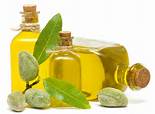





Peanut Oil: Are There Health Benefits?
Made from peanut plant seeds, peanut oil — also known as groundnut oil — is commonly used in baking, sautéing, frying, and other forms of cooking.
While peanut oil offers a slightly nutty flavor, it’s generally a good, neutral option to use for most recipes. It has a high smoke point (around 450°F), meaning it can withstand high temperatures without burning.
Peanut oil is rich in vitamin E, an antioxidant that offers many protective benefits against chronic disease. This, along with its healthy fat content, means peanut oil can be a great addition to your diet — as long as you consume it in moderation.
Nutrition Information
One serving (1 tablespoon) of peanut oil contains:
- Calories: 119
- Fat: 14 grams
- Saturated Fat: 2 grams
- Protein: 0 grams
- Fiber: 0 grams
- Sugar: 0 grams
Peanut oil also contains nutrients like:
- Vitamin E
- Monounsaturated fat
- Polyunsaturated fat
- Phytosterols
- Omega-6 fatty acids
Potential Health Benefits of Peanut Oil
Peanut oil is high in antioxidants and good fats that can keep your heart healthy and blood sugar levels down.
Using this oil for cooking can provide potential health benefits including:
With high levels of vitamin E and monounsaturated and polyunsaturated fats (unsaturated “good fats”), peanut oil could be good for the heart. Studies have shown that replacing saturated fats with these types of unsaturated fats contribute to a lower risk of heart disease.
Other studies have found that vitamin E protects the body from free radicals, which can damage cells and cause some cancers and heart disease.
Better Diabetes Control
Some studies have linked unsaturated fats to improved blood sugar levels in those with diabetes. Consuming polyunsaturated fats instead of saturated fats can also improve insulin secretion, which helps keep blood sugar levels low.
Lower Cholesterol
The monounsaturated fats in peanut oil can also help you lower your LDL cholesterol, otherwise known as the “bad” cholesterol. High LDL can clog or block arteries, leading to heart disease and stroke.
Potential Risks of Peanut Oil
While peanut oil comes with a number of health benefits, there are a few notable downsides.
If you have allergies or consume a large amount of other omega-6 fats, you’ll want to be aware of these potential health risks:
Peanut Allergies
Allergies to peanuts are one of the most common in children. A peanut allergy can lead to severe attacks that could lead to anaphylaxis and even death.
However, it’s not clear whether peanut oil will cause the same severe allergic reaction. Refined peanut oil may be safer, while crude, cold-pressed, or expelled varieties could cause symptoms if you have a peanut allergy.
Heart Disease
The omega-6 fatty acids in peanut oil can be harmful if your diet consists of too much of this type of fat. Many Americans already consume a diet high in omega-6 fats, which are found in vegetable oils, fast food, and many packaged products.
Studies have found links between omega-6 fats and an increased risk of heart disease. However, consuming peanut oil in moderation is generally considered safe.
Comfrey oil Infused
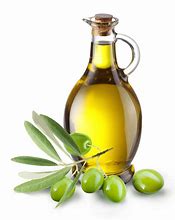







Comfrey oil Infused
Comfrey leaves are believed to have anti-inflammatory, skin regenerative and antiseptic properties.
They are used to relieve muscle strains and ligament sprains.
Do not use/ avoid comfrey if you are allergic to it, on broken skin , on children, the elderly
If pregnant or breasfeeding, inliver disease, alcoholism and cancer.
Do not use/ avoid comfrey if you are taking acetaminophen (panadol, tylenol).
Do not use/ avoid using comfrey if using herbs known to cauyse liver problems such as kava, valerian and skullcap.
Reference: How to make natural infused Oils: Miriam Kinai
Articles-Most Read
- Home
- Contact Us
- Coconut Oil-2
- Absorption Ratings for Carrier Oils
- Cold Pressing Method
- What are Essential Fatty Acids
- Cherry Kernel Oil
- Fixed Oils and Skin Penetration
- Hempseed Oil
- Almond Oil
- Cocoa butter
- Camelina Oil
- Antibacterial Effects Of Carrier Oil
- Coconut Oil
- Lime Blossom Oil (macerated)
- Carrot Oil, Wild Carrot Oil (macerated)
- Apricot Kernel Oil
- Kukui Nut Oil
- Pumkin Seed Oil - Cucurbita maxima, C. pepo
- Jojoba Wax
- Passion Flower OIl (Macerated)
- Hydrocotyle Oil (macerated)
- Palm Kernel Oil
- Rapeseed Oil - Carrier Oil
- Nutrients
Who's On Line
We have 99 guests and no members online
Articles-Latest
- How to Make Homemade Olive Oil: A Step-by-Step Guide
- 20 Evidence-Based Aloe Vera Oil Benefits For Skin, Hair & Health
- Peanut oil - Cold pressed - Are There Health Benefits? How To Make
- What Are the Health Benefits of Black Seed Oil?
- Comfrey oil Infused
- Chamomile Flowers Infused Oil
- Calendula Flowers Infused Oil
- Arnica Flowers Infused Oil
- How To Make Herb-Infused Oils
- DIY avocado oil for healthy skin
- How To Make Coconut Oil
- 8 Benefits of Mustard Oil, Plus How to Use It
- SHOREA STENOPTERA SEED BUTTER
- Shea Butter- 7 Amazing Benefits Of Shea Butter
- Monoi Oil For Hair & Skin
- Mango Seed Oil
- Cohune Oil Is The Next Big Thing
- Brazil Nut OIl
- 7 Impressive Benefits Of Allspice
- Camelina Oil Benefits, Uses, and Side Effects

